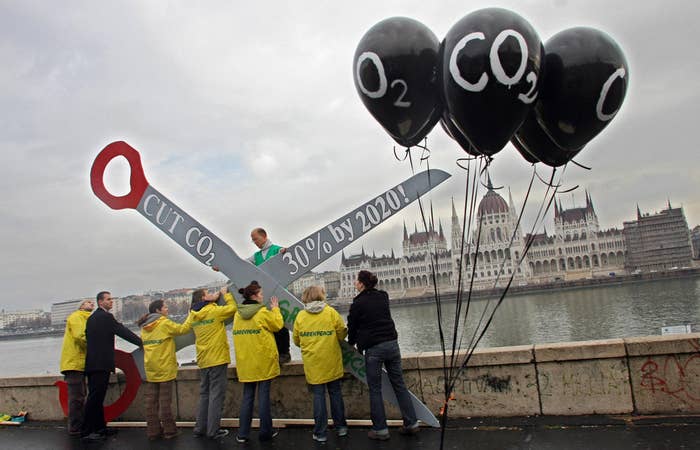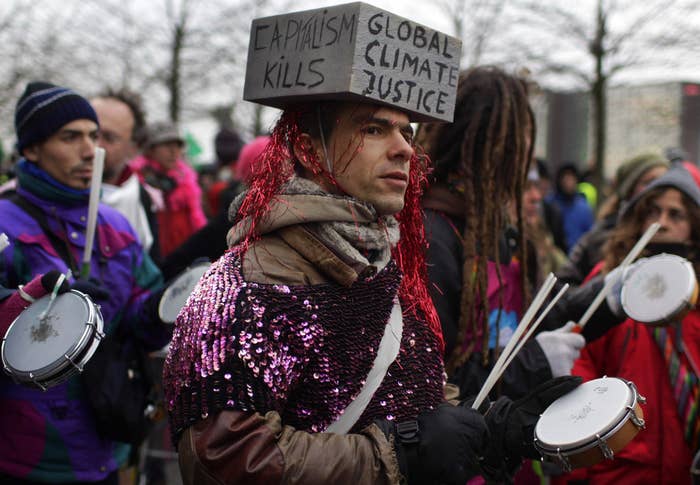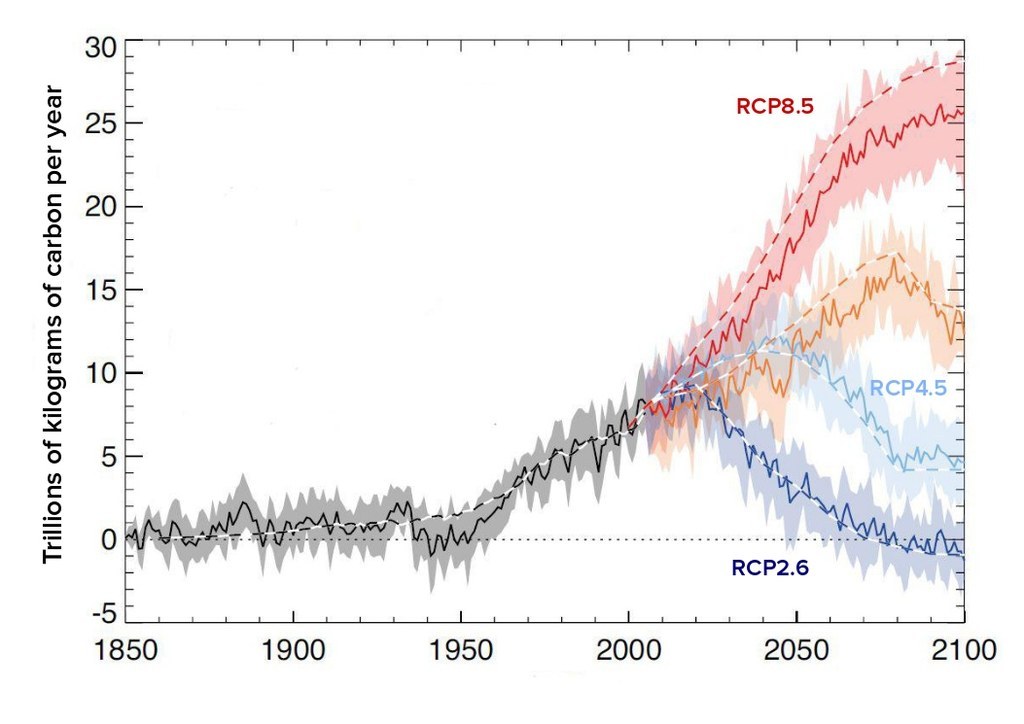
This coming December, the world's nations will gather in Paris to figure out how they will avoid dangerous climate change. To say that expectations are low is putting it mildly.
For climate policy experts, the best expected outcome — a series of nonbinding commitments from individual countries to curb emissions — would still leave us hurtling into the danger zone, long defined as a rise in the average global temperature of 2 degrees Celsius by 2100.
It's a bleak forecast — and scientists are partly to blame, claims Oliver Geden, a policy expert at the German Institute for International and Security Affairs in Berlin. In a provocative commentary published Wednesday in the journal Nature, Geden claims that many climate scientists have been too willing to explore unrealistic scenarios to hit the 2-degree target, without pushing for the rapid emissions cuts that were once thought necessary to achieve the goal.
The very integrity of climate science is at risk, Geden claims.
"Scientists are way too responsive of what's demanded by politicians," Geden told BuzzFeed News. And caveats pointing out that these projections are very ambitious are simply being ignored, he added. "In the policy world, they only want to hear that we'll still make it, and they don't want to read the fine print."
Geden's article has triggered an angry reaction from leading climate scientists, who accuse him of misrepresenting their work. But as tempers fray, an important split is developing in the world of climate science and policy. On one side are those who aren't prepared to abandon the 2-degree target, while the other side are those who say it's an impractical goal that has outlived its usefulness.
In 2007, the Intergovernmental Panel on Climate Change (IPCC), the U.N.'s advisory body on the scientific, technical, and socioeconomic aspects of global warming, stated that emissions must begin dropping by 2015 in order to meet the 2-degree target. But the IPCC has since changed its stance, Geden points out. Its latest report, published last year, argues that emissions could be higher in 2030 than they are today and still achieve the 2-degree goal.
That scenario, which the IPCC calls RCP2.6, assumes that power plants will be fitted with technology to capture carbon dioxide, which would then be stored deep underground. It would also require the widespread use of bioenergy — technologies that use plants, which turn carbon dioxide into sugars as they grow, as fuel. By the last couple of decades in this century, the scenario assumes, these technologies would be so widely used that the amount of carbon dioxide in the atmosphere actually begins to go down.
Geden argues that these technologies are unproven and unlikely to be deployed on the scale that would be necessary. His commentary calls the 2-degree target "scientific nonsense."

But leading climate scientists contacted by BuzzFeed News rejected this claim.
"Geden tries to make up with provocative rhetoric what he is lacking in arguments — and his claim simply disagrees with what most scientific assessments have shown," Stefan Rahmstorf, a climatologist at the Potsdam Institute for Climate Impact Research in Germany, told BuzzFeed News by email.
"It is certainly the case that preventing 2 degree warming is still very much physically possible," Michael Mann, a climatologist at Pennsylvania State University, said by email. "The only obstacles at this point are political will, not physics."
Leaders of the IPCC, meanwhile, deny that they have succumbed to pressure to deliver a politically acceptable message. It was scientists themselves who decided to explore what would be necessary to meet the 2-degree target, Ottmar Edenhofer, an economist also at the Potsdam institute, told BuzzFeed News. He is co-chair of the IPCC working group studying ways to mitigate climate change.
Even if the 2-degree target is scientifically feasible, however, some experts argue that it is impractical — and worse, is getting in the way of a meaningful debate about how to respond to climate change.
The 2-degree target makes sense only in the computer models run by climate scientists, argues Glen Peters, a climate policy specialist at the Center for International Climate and Environmental Research in Oslo, Norway. "In the real world, you have to include political feasibility," he told BuzzFeed News by email.
The dangers of climate change are also hard to relate in a simple way to increasing temperatures, according to political scientist David Victor of the University of California, San Diego, and Charles Kennel, former director of the Scripps Institution of Oceanography in La Jolla. In an opinion piece published in Nature last fall, they argued that the target was "wrong-headed," and providing a target for those who deny that climate change is a real threat.
Meanwhile, scientists studying how the world may need to adapt to climate change are looking at different IPCC scenarios. They are mostly comparing the anticipated effects of RCP4.5 — which assumes that carbon emissions will peak by mid-century, and then fall rapidly — with a worst-case scenario called RCP8.5, under which emissions would continue on their current upward trajectory. Under RCP4.5, global temperatures are likely to rise by 3 degrees Celsius by 2100, whereas RCP8.5 could see a hike of 5 degrees or more.
Fossil Fuel Emissions

Some scientists who support the 2-degree target worry that the sparring over its value is diverting attention from the crucial task of enacting policies to limit climate change. As Gavin Schmidt, director of NASA's Goddard Institute for Space Studies in New York, told BuzzFeed News: "What's the point arguing about where you're going to park if you're not even driving in the right direction?"
Perhaps the greatest danger of all this bickering is that the general public will be even less interested in a temperature target that seems to have little meaning to their lives, Robert Brulle, a sociologist at Drexel University in Philadelphia, told BuzzFeed News. "It becomes this dueling debate between experts that nobody really cares about."
